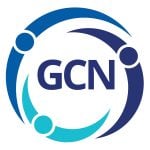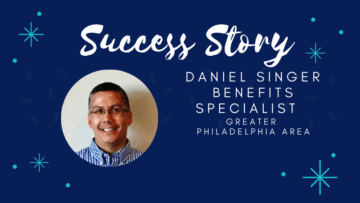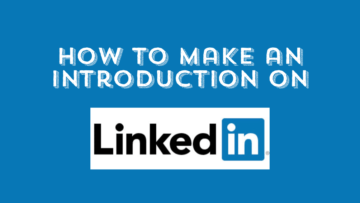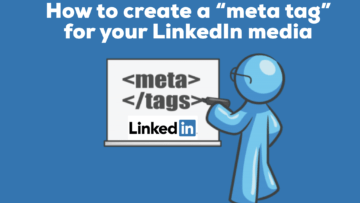Tell us about yourself and your career.
My name is Daniel (Dan) Singer, and I am a trilingual employee benefits professional committed to providing outstanding client experiences. Although I am currently in the Insurance and Employee Benefits industry, I started in the federal government, followed by international client-facing roles in manufacturing and information services. The last downturn in 2009 made me switch to insurance and employee benefits, starting in sales, then I eventually entered into service roles in different areas of benefits. In 2014, I landed a Benefits Specialist role in managing benefits for 8,000+ employees. However, in late 2016, I found out that the position would be relocated to North Carolina. Fearing unemployment, I grabbed opportunities in the Benefits Compliance and Consulting areas of employee benefits. My most recent role was a new role, supporting two insurance areas within a major insurance brokerage and risk management firm.
Why were you looking for a job?
Despite the great culture and fantastic people at my last job, I realized the job itself wasn’t the best fit. It was a brand new position supporting two different areas of insurance. I accepted the job, assuming my language, problem-solving, and team-collaboration skills would all be used (all three of these skills were constants throughout my career). At specific points, I wondered, Was this why I got into employee benefits? Despite my efforts to make the job work, we mutually parted ways in February of 2020. I felt relief, as well as frustration.
With the help of a friend who himself happened to have a fantastic professional career, I then determined what I did and did not want in my next job. This friend also helped me jump start my networking strategy (which I’ll describe below). I began to reach out to my LinkedIn contacts, some I hadn’t spoken to in over seven years!
I set a schedule and kept a journal to keep me motivated and focused. I found an app to keep my language skills sharp (Duolingo). I exercised more, and I read the Old Testament. But I felt something was missing, and, at times, I wanted to separate myself from the process entirely because it was so frustrating. Nonetheless, I was grateful to be home with my family and be safe.
How did you discover PAGCG?
An ex-colleague of mine from the Information Services’ industry suggested the group. And boy, I’m so glad she did. Not only did I find other individuals to network with, but it was also cathartic for myself and others who were in transition. We had slight differences on how we ended up being in career transition, but we had the chance to vent to each other and support one another.
How did PAGCG help you in your job search?
While PAGCG didn’t give me my new job, it more than provided me with the tools, forum, and opportunities to improve my personal brand and fine-tune my search. For me, it was Paul Cecala’s presentation in July of 2020 on “Project Planning Your Job Search” hosted at the Tuesday Great Careers Meeting out of King of Prussia. Before the presentation, I had separate documents describing my ideal job, target companies, skills, and position (in addition to my resume). Paul’s presentation made me re-examine my job search efforts, and I set out to create my personal Marketing Plan, which genuinely became central to my job search efforts. The plan made me more strategic with whom I wanted to network, which companies to target for employment, and what unique skills I had that would allow me to contribute to a job effectively.
Next, I carefully chose the PAGCG sessions I thought would benefit me most, especially those focused on creating a professional brand. These sessions helped me take an in-depth look into my accomplishments and what differentiates me as a candidate. I immediately set out to refining my 30-second intro and enhanced my presence on LinkedIn, based on what I learned at the sessions. I will say I’ve been on LinkedIn since 2006, but this group taught me how to exploit this invaluable platform to my advantage best. Please note: if you’re attending the sessions and not applying what you learn, why do you attend?
One of the more memorable sessions was with Jessica Koch (another speaker on personal branding). We ended up networking separately, and she re-introduced me to a free CRM program (zoho.com) I used years ago when I first entered the insurance and benefits field. Gone were my spreadsheets keeping track of networking discussions – it moved to the cloud.
The last and most important contribution was choosing a Career Success Group Meeting. For me, Deep Damle’s Career Success Group meetings, typically on most Thursdays, made me feel very much at home in the group, especially with Deep’s chill style and professionalism. His weekly feedback helped me to continually refine my brand and the delivery of my elevator pitch. In addition to networking, I met some fabulous people I could learn from, and we supported one another on days we questioned our worth. The group made us accountable each week for our actions and encouraged us to follow through on what we said we would do during the meetings.
How did you find your job? How long did it take?
Before joining the group, I already had a networking strategy in place. However, it was that strategy, together with the tools that PAGCG provided me, and with fellow PAGCG job-seeking member, Lauren Conley. Lauren, who has also landed a job, introduced me to a recruiter she knew and someone I wanted to network with mentioned by another contact. That recruiter would eventually lead me to my current job, so I credit Lauren in part for helping me land this job!
It took me a little over seven months to find a job. Armed with a personal marketing plan, a desire to network one on one via Zoom or phone, a highly structured schedule Monday through Friday (with the ability to switch/pivot), and the perseverance to keep going, I treated my job search like an actual job. Most importantly, I knew when I needed to back away and take a break.
The job I have now was one of my target companies listed on my marketing plan. When I interviewed, I demonstrated to my interviewers:
1) I researched the company
2) I showed my excitement for the company and the role I was interviewing for, and
3) I explained how I would add value if selected for the position
What kept you motivated during the job search, especially during the downtimes?
Many things kept me motivated during the job search, including:
1) Daily exercise (including running, walking, and yoga)
2) Highly structured schedule with blocks of time allotted to different activities (something I learned nearly ten years ago)
3) A spiral notebook to document my activities (so if I wouldn’t question myself as to what I accomplished)
4) Staying engaged through networking and friends, and
5) Self-care (e.g., knowing when to put the job stuff away, reading religious scriptures, etc.)
At my core, I have, and I think always will be a positive person. I’ve been through downturns before and knew the consequences of allowing negative thoughts and feelings to take one down. I knew that not every day would be rosy or as productive; however, I wanted to end each day, knowing I did everything I could to be productive and manage my time as wisely as possible.
What were the lessons that you learned during your job search?
The biggest lessons I learned included: organization, vision, clarity, perseverance, and the power of your personal brand.
Organizing my week kept me on track and ensured I didn’t spend too much time on one task. It also ensured I correctly followed up and managed my networking connections so that they wouldn’t be forgotten after the first meeting.
Realizing I had gone through two jobs in nearly two years simply because I wanted to stay “employed” was a difficult pill to swallow, but it gave me the clarity to realize what I want and don’t want in my next job. As I assessed my skills and accomplishments and conducted searches, those activities drove me closer to the job I started on October 5th.
With the pandemic, it is probably one of the worst times in US history, and world history for that matter, to be in career transition. A few people told me that “a job doesn’t define you,” and I still believe that. Having been in transition before made me aware of the consequences of overly negative thoughts. With my religion and self-care to lean on, this time in career transition, coupled with the vision I mentioned previously, I had the will to take each day as it came until I got the news of a job offer.
Finally, and most importantly, your personal brand. Thank you, Lynne Williams, for all that you do for this group and the sessions you run, and for making us feel our worth. Coming up with branding that has now carried over into LinkedIn and my 30-second commercial (aka elevator speech), I think I will always stay with me. Working on my personal brand, together with my marketing plan, networking activities, and clarifying what I wanted in my next job, really prepared me.
Do you have any networking tips or tricks that you can share?
As someone commented in a previous “landing” article, LinkedIn is crucial. But it’s nothing more than another platform to connect with contacts online, nothing more. My networking strategy involved connecting via LinkedIn and following up with those LinkedIn connections to schedule a half-hour phone or zoom call with each.
With the help of a friend (the same one who asked me to write what I did and didn’t want in my next job), I created what I was going to say when looking for my next opportunity. I also wanted to hear about others’ experiences and, at the same time, expand my professional network. My meetings were always organized. One of the first things I did was be considerate of that contact’s time, to ensure I watched the time and our meeting didn’t spill over the allotted time. The hardest thing for me to do was reach out to contacts I hadn’t kept up within seven years. Fortunately, a few of them were kind enough to make time for me. I’m determined now not to let more time pass to keep those connections alive.
My networking strategy was enhanced when I created my personal marketing plan and created my personal brand (which included my 30-second commercial and LinkedIn profile). As a result, my contacts knew what I wanted and where I wanted to land–potentially. Before being aware of my personal brand, it made some of these one-on-one meetings challenging. Having both my brand and personal marketing plan gave me the confidence to know exactly what I wanted. It allowed me to network with individuals who reached out to me on LinkedIn (including a brokerage I didn’t even know existed).
After the one-on-one meeting, I’d ask my contact if he/she knew one anyone else I could talk to, based on what I’m trying to do and who would be a suitable introduction for them.
Always, always ask for an introduction. And to quote Deep Damle, when you network, it’s not about you, but how you can help others.
Try not to get discouraged if you reach out, and they don’t reply. I would follow up every couple of weeks or so if you’re requesting an introduction or meeting. At the same time, don’t waste your time if your follow-ups are not being reciprocated. You are worth more than that.
Keep tabs on how many times you’ve reached out to a client and/or whom he/she had introduced you to. I started doing that on spreadsheets; however, I was reacquainted with the free CRM system Zoho to track and monitor my networking contacts and job opportunities.
What will you do in your new role?
I will be a Benefits Administrator at an insurance brokerage dedicated to servicing non-profit and social service organizations’ employee benefits needs. At the core of my job, I’ll get to use the language, problem-solving, and collaboration skills that have marked my professional career, even before getting into employee benefits.
What is one takeaway or nugget of wisdom that you would like to share?
I have two nuggets: Plan (the verb plan and the noun, an actual plan) and keep at it (i.e., treat the job search like a real job).
Whether on a computer or a legal pad, plan what you want/don’t want in a job. Plan your week. Plan to attend only the webinars/meetings you think will best benefit you. Plan to follow up by phone or zoom when you’ve connected with someone on LinkedIn. Plan to apply to only those jobs that are your target jobs (provided, of course, you have your marketing plan that will confirm what your target job[s] is[are]).
Keep at it. Unfortunately, unless you’re in an industrial union, federal government employee, or a tenured educator, being in career transition is a part of working in the private sector. Sometimes it’s made worse by our age or circumstances. We’re lucky that we have groups like the PAGCG to keep us moving. Accept the bad days and move forward with each day.




